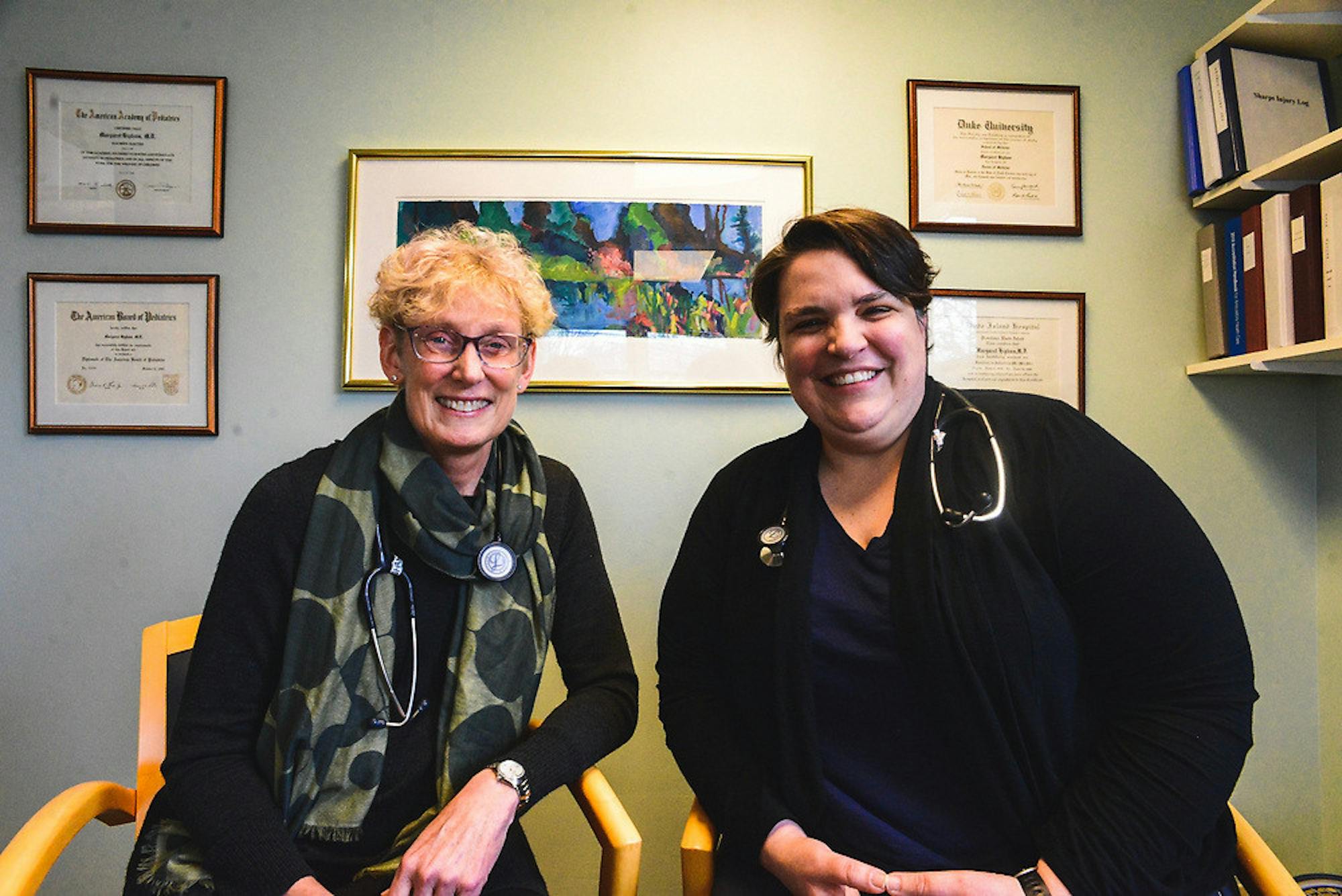In January of this year, the American College Health Association (ACHA) released new guidelines for the use of human immunodeficiency virus (HIV) pre-exposure prophylaxis (PrEP) in college health centers. ACHA PrEP in College Health Task Force, the task force that put together these guidelines, included two Tufts Health Service staff members: Margaret Higham, M.D., the medical director of Tufts Health Service; and Ariel Watriss, M.S.N., N.P.-C, a nurse practitioner and sexual health specialist.
"We believe that college health is uniquely positioned to make a significant impact in the health of young adults in the U.S. by offering PrEP as a standard health care service," the report states.
According to the report, PrEP is a daily medication that, if taken correctly, can reduce the risk of contracting HIV by 90 percent. The FDA approved PrEP in 2012 to help prevent HIV, according to Higham.
Higham was the chair of the task force and Watriss was a member, along with other medical professionals from around the country, according to the ACHA website.
Both Watriss and Higham had a history of working on HIV prevention before their involvement with the ACHA task force. According to Watriss, she had a background in sexual health and HIV prevention before she came to Tufts, having been a part of some of the research teams that lead to the FDA approval of PrEP.
Watriss said that shortly after joining Tufts Health Service, she began working with Higham in 2015 to develop a set of protocols for health care providers at Tufts to follow regarding the use of PrEP.
According to Higham, the HIV guidelines that existed prior to the development of the Tufts protocols were extensively detailedpapers put out by the Centers for Disease Control and Prevention in 2014.
“We needed something that was focused on college health, … straightforward … and more manageable to use,” she said.
Higham and Watriss both stressed the importance of focusing efforts on the college-aged population since people in this group are traditionally more at risk for HIV.
“It made a lot of sense to … implement this because we do see HIV in college health settings and we wanted to help reduce that number,” Watriss said.
PrEP has been prescribed through Tufts Health Service since 2015, and the number of students who go to Health Service for PrEP has been increasing each year, according to Higham.
Alexandra Donovan, director of the Center for Awareness, Resources and Education (CARE) office, said that educating students about HIV treatment and prevention is an important part of the sex health goals of student Sex Health Reps (SHRs).
“There are a lot of questions and misconceptions around PrEP that I’ve heard on this campus so we create spaces where students can have discussions and we advocate for students to engage a clinician to advocate for their healthcare,” she told the Daily in an email.
She also explained that students are coming from a variety of backgrounds with varying levels of information about HIV and sex health.
“Only 25 percent of the first-year class is coming from states that [mandate] medically accurate sex education," Donovan said. "So if we reverse that, 75 percent are coming in with false information, abstinence-only or non-comprehensive information.”
According to Donovan, SHRs work closely with the Health Service to build a bridge between the health providers and the students. In this way, the SHRs hope to create a sex-positive community and bring everyone up to the same level of education once they come to Tufts, she said.
She also stated that Tufts is progressive when it comes to sex health, but that not all schools can say the same.
“College and universities are all over the map with sex health — there are those that have been doing this longer than we have and those that don’t do it at all,” she said.
According to Higham, it was not common for primary care doctors or college health providers to offer PrEP until recently.
To expand the reach of their work, Higham said that she and Watriss have attended local, regional and national college health conferences to give lectures and hand out their protocol to other health providers.
“Our goal is to help encourage college health providers to feel comfortable with using PrEP, and to be comfortable offering it to their students,” Higham said.
Watriss also emphasized the importance of sharing this knowledge.
“I want providers to feel empowered to help students feel empowered,” she said.
So far, Higham said their work has successfully influenced other college health centers to become more involved in HIV prevention.
“We do hear that people are adopting it, learning how to do it, learning more about the medication [and] feeling more comfortable,” Higham said.
Watriss said that now more than ever is the time for students and the general public to focus on sexual health and HIV prevention.
"We’re looking at a time in our world where people don’t live in these little social or sexual network bubbles … It’s really important to help people expand their health autonomy to accommodate who they are and where they’re going in their lives,” Watriss said.
Tufts Health Service contributes to national HIV prevention guidelines

Margaret Higham (left) and Ariel Watriss (right) pose for a portrait in a Tufts Health Service office on Feb. 27, 2019.





